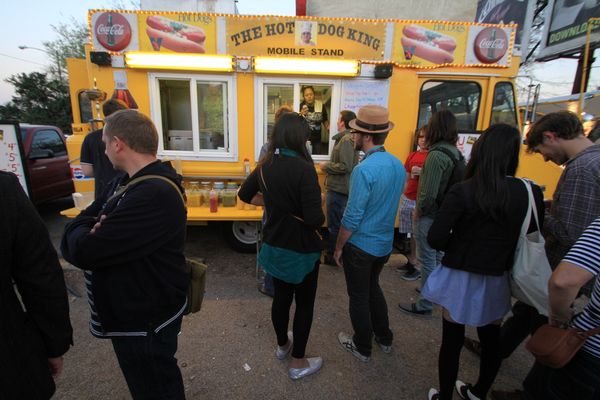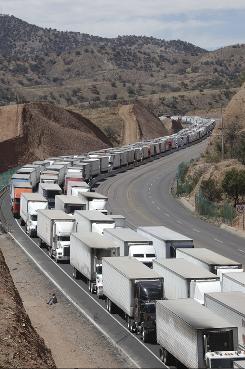Trendy trailers and mobile food vendors are now facing tougher regulations in Austin, Texas.
KVUE News reports that late Thursday afternoon, Health and Human Services subcommittee members approved new regulations to regulate an industry that has doubled in popularity during the past four years.
 Council member Laura Morrison, who serves on the Health and Human Services subcommittee, was quoted as saying,
Council member Laura Morrison, who serves on the Health and Human Services subcommittee, was quoted as saying,
“The bottom line is if you have people serving food on a shift for eight hours a day, it’s important to make sure there are accommodations for them to have safe hygiene and wash their hands. Public health is what we are all about when we look at this. We want to make sure there is enough controls in place to make sure we aren’t subjecting the public to foodborne issues.”
Some mobile food vendors choose to rent commercial kitchen space to prepare food. Under the new regulations, the formal agreements must be certified by a notary to ensure food safety.
The City of Austin is forecasting more than 1,600 mobile food vendors in 2011.

 The road that leads to the border begins to fill with trucks carrying fruits, vegetables and manufactured goods at 6:30 a.m. By noon there can be a line of trucks up to 7 miles long snaking through the low desert hills waiting to make the crossing (right ,photo from USA Today).
The road that leads to the border begins to fill with trucks carrying fruits, vegetables and manufactured goods at 6:30 a.m. By noon there can be a line of trucks up to 7 miles long snaking through the low desert hills waiting to make the crossing (right ,photo from USA Today).